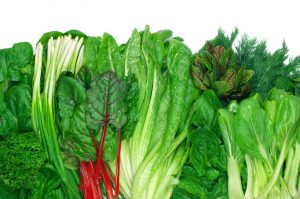The Energy Vitamin
Optimise your energy levels by paying attention to the sources of B12 vitamins you’re getting in your diet.
Vitamin B12 (the energy vitamin) is an essential vitamin that has an extremely important role in the functioning of our whole body. Although, B vitamins are highly popular for their energy boosting properties, they in fact have many more crucial responsibilities. Mainly for the health of our nervous system and healthy blood supply.
Our brain and nervous system rely on vitamin b12 which maintains the protective sheath that surrounds the nerve fibres, and also promotes the development of healthy nerves. The hard-working B12 vitamin’s role does not just end there, it is also essential for DNA and RNA synthesis, bone cell activity, metabolism, and energy production.
How vitamin B affects our energy levels
To explain, B vitamins do not actually provide direct energy to our body, but instead they facilitate the digestion of food into the form of energy that our cells use, called ATP (adenosine triphosphate). Moreover, a deficiency in folate (B6) and vitamin B12 both contribute to a form of anaemia; vitamin-deficiency anaemia. Anaemia affects your energy levels as it causes a reduction of oxygen to your cells, impacting their functioning.
Unhealthy vitamin B12 levels = unhealthy blood
Let’s also touch on the role of our ever so important red blood cells. Our red blood cells keep every cell and organ in our body alive by supplying them with oxygen and removing waste products like carbon dioxide out of the body. Our blood is so crucial to our survival, that if we lose too much, or our blood cells are damaged, it can be fatal. For this reason, the importance of vitamin B12 needs to be emphasised; Due to the fact, without this incredible vitamin our bone marrow would not be able to produce a healthy red blood cell. For instance, if someone is vitamin B12 deficient, then their red blood cells may be abnormally large and resemble the shape of an oval, not the healthy round shape they should be. Ultimately, if our red blood cells struggle to function, then oxygen to our cells is harmfully decreased.
The relationship between Vitamin B12 and folate
Interestingly, vitamin b12 and folate molecules depend on each other for activation. Did you know, folate deficiency is one of the most common vitamin deficiencies in Australia? Findings from The Australian Health Survey states that approximately one in eleven (9%) adult females (aged 19 and over) did not meet their requirements for folate. The vitamin assists the formation of red blood cells, to grow and repair cells and tissues, and DNA production. Furthermore, folate is recommended in pre-pregnancy and early pregnancy for the prevention of neural tube defects, resulting in spina bifida. To clarify, Spina Bifida is a condition that occurs in the first 4 weeks of pregnancy where there is a fault in the development of the spinal cord, vertebrae and the tissues surrounding it.
Vitamin B12 and folate linked to depression
Were you aware that 45% of Australian’s will experience a mental health condition at some stage of their life? According to Beyond Blue Australia approximately 1 million adults have depression. Many studies are associating higher levels of plasma homocysteine with depression. Homocysteine is a common amino acid that is found in the blood. Elevated levels of the amino acid are seen mainly if red meat is consumed, but also due to alcoholism and kidney problems. Many studies are now linking a deficiency in vitamin B12 and folate to raised levels of homocysteine, resulting in a higher risk of depression.
Vitamin B12 deficiency
Vitamin B12 can be stored in the liver for years, making a vitamin deficiency uncommon. Nevertheless, deficiencies do still occur due to poor absorption more than poor dietary intake. The highest food sources of vitamin B12 are from animal products such as meat, fish, poultry, shellfish, milk, eggs and cheese. As a result, vegans and vegetarians are at risk of deficiency as plant-based foods are not a reliable source of active vitamin b12.
Other risk factors that can lead to poor B12 vitamin levels include:
- Crohn’s disease
- Coeliac disease
- Strict vegan and vegetarian diets
- The elderly
- People who have had parts of the bowels removed
- Certain drugs such as Metformin, proton-pump inhibitors, Colchicine and Amino-salicylic acid
- Taking vitamin C supplements alongside a meal high in vitamin b12 food sources

Signs and symptoms of deficiency to look out for
Symptoms of vitamin B12 deficiency are vast and are very similar to symptoms of many conditions, if you have any of the following symptoms that concern you, it is important to reach out for advice from a health practitioner.
- Anaemia (large cell type)
- Weakness and fatigue
- Yellowing of the skin (jaundice) or pale skin
- Sore tongue
- Loss of appetite
- Constipation
- Pins and needles due to poor nerve functioning
- Prolonged deficiency can lead to degeneration of peripheral nerves resulting in paralysis
- Shortness of breath
- Dizziness
- Blurred vision
- Mood changes, damaged brain nerves can lead to mood disorders
Summary
In summary, nourishing your body and its energy levels by including B12 rich foods frequently into your diet is recommended, not only will you feel better you will also be positioning your health to reduce the future risk of commonly associated conditions linked with B vitamin deficiencies which include stroke, dementia, and damage to the spinal cord.
If this blog has raised any concerns for you and you wish to speak with one of our team for further advice on how you can optimise your nutrition, then please refer to our contact page HERE.
Information Sources
Australian Health Survey- Usual Nutrient Intakes
Thank you for sharing!






